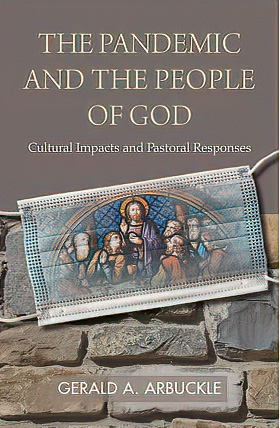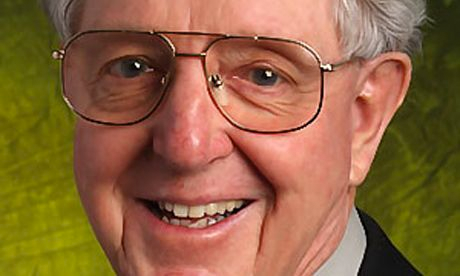While some people bunkered down during the Covid lockdowns, Gerarld Arbuckle wrote a book!
The award-winning author’s new book is about the Church in a post-COVID world.
In “The Pandemic and the People of God“, internationally renowned theologian and anthropologist and New Zealand-born priest, Gerald Arbuckle SM, weaves together insights from life, anthropology and theology in his analysis of the Church’s role in responding to the pandemic.
Arbuckle told CathNews that while writing the book, at times he felt overwhelmed by the devastating human costs of the pandemic, especially among society’s most vulnerable peoples.
“I became intensely aware of the traumatising consequences on individuals and families resulting from the massive escalation of local and global poverty and inequalities.
“Vaccines alone will never solve these human problems,” he said.
Arbuckle says no single crisis since the Second World War has left so many people in so many nations traumatised, overwhelmed by grief and stunned by the chaotic cultural and economic consequences of the Covid-19.
While there is a yearning for the ‘normality’ of the pre-Covid-19 era. It cannot be.
Globally an untold number of people have died, many without funerals or memorials to honour them.
Arbuckle says that while there is a yearning for the ‘normality’ of the pre-covid-19 era. It cannot be.
He begins his new book with a concise summary of the COVID pandemic’s diverse social, political and economic impact on people and communities.
He moves on to craft an anthropological model of the global crisis and its consequences for the Church and for ministry and then clarifies the Gospel’s pastoral responses that must guide the way forward for societies and the Church.
 It is Arbuckle’s view that when big spectacular cultural, political and economic events happen, such as the pandemic, the political, social and economic reverberations take years, even generations, to play out, and they rotate in unpredictable directions.
It is Arbuckle’s view that when big spectacular cultural, political and economic events happen, such as the pandemic, the political, social and economic reverberations take years, even generations, to play out, and they rotate in unpredictable directions.
As his book highlights, an experience of such traumatic severity leaves cultural, physical and mental marks which are indelible.
Even in crisis, Arbuckle is of the view that the world, its people, individually and collectively still need to make choices.
He identifies these choices as choosing whether to let the world further drift into global divisions and conflict – or deciding to find ways to co-operate in reestablishing our institutions on moral values of justice and compassion, no matter how difficult it looks.
Arbuckle is steeped in a lifetime experience of lived faith and reflects on the role of the People of God, whom he says can lead by building social relations based on moral values.
“We need, in church and society, to be steered by a narrative, not of individualism, of solidarity, respect for human dignity and participation – all the values inherent in the Good Samaritan parable.
“Together, in solidarity, we can creatively manage the enduring chaos, if we wish,” he says.
With theological reflections and prompts at the end of each chapter, the book offers students, clergy and pastoral ministers a way to understand and to implement pastoral responses to help heal the pandemic’s effects.
Walter Brueggemann, author, A Gospel of Hope says: “The best book I have read on the pandemic.
“After an unflinching diagnosis, the book is a summons to radical, active, transformative hope among those who have the wits and the courage to ‘refound’ viable community.
“It is framed according to Catholic Social Teaching, but has a deep appeal for those of us outside that particular frame of reference.
“In Arbuckle’s knowing hands the pandemic becomes a venue for radical restorative hope.”
Source
- The Pandemic and the People of God is available from Orbis Books
- Image: Marist Fathers New Zealand
News category: New Zealand.




